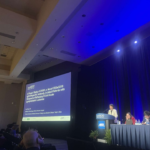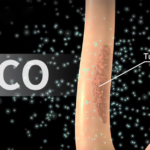
The 2024 American Society of Clinical Oncology (ASCO) Annual Meeting was grandly held in Chicago from May 31 to June 4. At this conference, Chinese researchers presented the first results of the Phase I study of SHR-A1912 in patients with B-cell non-Hodgkin lymphoma (B-NHL) on the international stage, including preliminary key data from the dose-escalation (D-ESC) and dose-expansion (D-EXP) phases. To promote the standardization of lymphoma diagnosis and treatment in China, Hematology Frontier invited the principal investigator of this study, Professor Zengjun Li from Shandong Cancer Hospital, to deeply analyze the study’s highlights and discuss future trends in the field of lymphoma treatment.Phase I Study of SHR-A1912 in B-NHL Patients
In recent years, antibody-drug conjugates (ADC) have become a research focus with several successful products on the market. Compared to traditional monoclonal antibodies, ADCs not only have targeting functions but also carry cytotoxic drugs into targeted tumor cells, exerting precise and directed killing effects. The conjugation technology of ADC ensures that cytotoxic drugs do not dissociate in the plasma, thus maintaining extremely low concentrations of free drugs in the plasma and avoiding unnecessary toxicity. Once the ADC antibody binds to the antigen on the surface of tumor cells, it enters the tumor cells through endocytosis, dissociates, and releases the toxin in the lysosome, achieving the killing effect. In the treatment of B-NHL, ADC drugs targeting CD79b and CD22 have shown great therapeutic potential.
Professor Zengjun Li explained that SHR-A1912 is a new ADC independently developed in China, combining an anti-CD79b monoclonal antibody with a DNA topoisomerase I inhibitor. The choice of CD79b as the target is mainly based on its widespread expression in B-NHL and rapid internalization after binding. Additionally, the success of the marketed drug Polatuzumab vedotin (POLA), which also targets CD79b, provided valuable experience for this research. Notably, the cytotoxic drug carried by SHR-A1912 is a topoisomerase inhibitor, differing in mechanism from the microtubule inhibitor monomethyl auristatin E (MMAE).
Methods and Results: The primary focus of the Phase I trial was to evaluate the safety and tolerability of SHR-A1912, while also conducting a preliminary efficacy assessment. By November 7, 2023, 49 patients had been enrolled, including 33 with diffuse large B-cell lymphoma (DLBCL), 12 with follicular lymphoma (FL), and 4 with marginal zone lymphoma (MZL). The median number of prior treatment lines for all patients was 2 (range 1-9).
In terms of safety, the concentration of free toxin in the patients’ plasma was low, with a toxin/antibody conjugate molar ratio of less than 1%, and no accumulation was observed after multiple doses, which is crucial for ensuring safety. Treatment-related adverse events were relatively few, primarily hematologic toxicity and pneumonia, common in advanced lymphoma patients and manageable with established clinical interventions. No unexpected adverse events occurred.
Although the primary goal of the Phase I trial was not to assess efficacy, preliminary results showed an objective response rate (ORR) of 56.1% (95% CI: 39.8-71.5) among 41 evaluable patients. Specifically, the ORR for DLBCL patients was 51.9%, and for FL and MZL patients, it was over 60% at 63.6% and 66.7%, respectively. SHR-A1912 monotherapy achieved an efficacy rate exceeding 50% in relapsed and refractory B-NHL patients, a highly encouraging result that boosts confidence for further research and lays a solid foundation for future studies.
New Horizons
Latest Advances and Future Directions in B-NHL Treatment
In recent years, the field of B-NHL treatment has seen significant advancements, particularly in drug development and the application of new technologies. These advancements are prominently reflected in two main areas:
- Antibody-Mediated or Immune Cell Therapy: This includes ADCs, bispecific antibodies, and chimeric antigen receptor T-cell therapy (CAR-T). ADC drugs combine the targeting ability of antibodies with the killing power of chemotherapy drugs, directing chemotherapeutic agents to tumor cells and reducing the impact on normal cells. Bispecific antibodies activate immune responses by simultaneously recognizing specific molecules on tumor and immune cells, enhancing immune cells’ attack on tumor cells. CAR-T therapy involves modifying the patient’s T cells to express specific chimeric antigen receptors, improving their recognition and killing of tumor cells. These innovative therapies, under the framework of precision medicine, increase treatment accuracy and efficacy, significantly improving patient outcomes and quality of life.
- Development of Small Molecule Targeted Inhibitors: Research is also focused on developing new small molecule targeted inhibitors for different lymphoma subtypes, providing more personalized treatment plans. These inhibitors target specific molecular targets, offering precision treatment. However, the development and application of these drugs require precise classification and typing of lymphomas to ensure targeted and effective treatment. Additionally, clinical applications often face challenges of drug resistance, which limits therapeutic efficacy and increases complexity. Future research must address drug resistance and explore new strategies and drugs to overcome or reduce resistance.
Both research areas have their strengths. From a clinical treatment perspective, targeting widely expressed markers might be more convenient and effective. On the other hand, research on small molecule inhibitors promotes understanding of lymphoma pathogenesis. Professor Zengjun Li emphasized that these advancements not only provide new treatment options for patients but also guide future research and clinical practice in a new direction. Future research should align with the current trends in precision medicine to advance B-NHL treatment.


